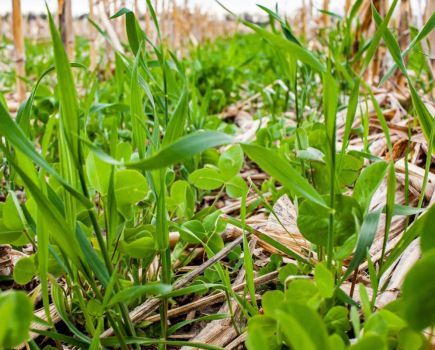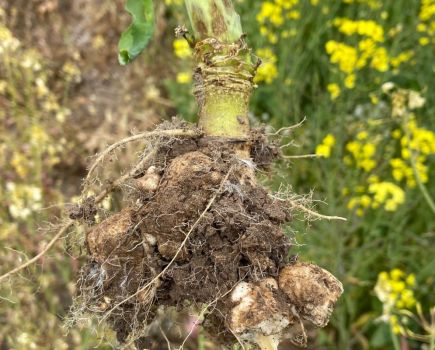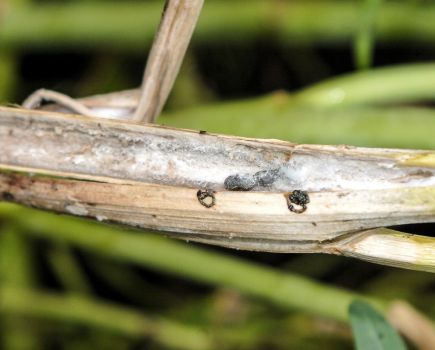For arable farmers one of the key inputs that has the biggest contribution to GHG emissions are synthetic fertilisers, responsible for approximately 31% of the industry’s emissions in the form of nitrous dioxide (N2O).
According to the Energy and Climate Intelligence Unit, agriculture contributes 84% of the UK’s total N2O emissions, so it’s likely this will be a key focus area for a reduction. Dieter Helm, professor in energy policy at Oxford University and chair of DEFRA Natural Capital Committee, believes that under the ‘polluter pays’ principle there needs to be some disincentive for emissions while ‘public money for public goods’ can offer incentives to encourage carbon sequestration, with “the greatest gains where farming has been most intense.”
Speaking at the Sustainable Food Trust ‘Farming and Climate Change’ conference in July, he indicated that the carbon cost of red diesel, fertiliser and petrochemicals could potentially attract a carbon tax.
But Dieter also believes that farming can’t be held to being “the climate change sector” while goods are imported with higher carbon footprints, “it’s nonsense to consider UK net zero without looking at imports from elsewhere.”
As an example he cites a move to stifle British Beef production and import South American beef, where deforestation is occurring at the rate of 1 ha/min. But the same applies for inputs such as fertilisers and pesticides, so where does that leave UK farmers?
“The carbon costs of products should attract a price that deters them from being imported. That means farming will have to pay for carbon consumption not just production,” he says. “But there’s no sustainable future for agriculture unless tariffs and border adjustments are sorted out and without UK agriculture, there’s no net zero.”
Clearly there are many factors government policy will need to address so that UK farmers aren’t disadvantaged and there’s broad recognition that agriculture is a major part of the solution. Jane Salter, head of environment policy at AIC, warns that it’s not easy to regulate for GHG emissions in agriculture because legislation can create unintended consequences.
“What’s needed is a mindset change around environmental goods and ‘balancing the system’, which comes down to sustainability and efficient uses of resources,” she says.
To achieve this balance Jane says that becoming less intensive isn’t the answer to decarbonising agriculture. “Increasing productivity/ha and environmental protection have to work hand in hand to achieve this.”
When asked about the possibility of a fertiliser tax, she points out that fertiliser usage has been coming down and the carbon-footprint of synthetic fertilisers made in the EU has reduced by 40% in recent years.
Yara’s Mark Tucker explains that the fertiliser industry has tackled N2O emissions during manufacture by fitting catalysts at factories – a process known as ‘abatement’.
Mark believes the danger of taxing fertiliser wouldn’t just be a knock to productivity, it could stifle the investment in innovation that companies and growers are making to become more resource (hence carbon) efficient.
Yara have undertaken a project which has the ambition of producing fertiliser with a zero carbon footprint within the next 20 years.
“Both urea and ammonium nitrate fertilisers are reliant on the Haber-Bosch process to produce ammonia. It’s an energy intensive process that’s heavily reliant on burning fossil fuels and high pressure,” he explains.
The process was industrialised in 1913 and although there have been gains in efficiency over the years it still remains the basis of all nitrogen fertiliser manufacture. Using a green process, the nitrogen comes from the air and hydrogen is supplied by the hydrolysis of water instead of from the fossil fuels currently used. Energy for the process is supplied from renewable resources such as wind and solar, with a zero-carbon ammonia the outcome.
“The Yara Green Ammonia Project has demonstrated that it’s possible to generate ammonia from a different process and could be a game changer by bringing net carbon emissions for fertiliser manufacture down to zero.”
British company CF Fertilisers is also working towards totally decarbonising the fertiliser production process as part of the Teeside Collective, but by a different route. The ambitious plan is to capture and store carbon in an underground sink, sinking their GHG emissions in the process.




